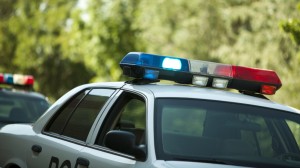 Police safety is one of the most important aspects of any officer’s life on and off duty. A constant battle for the work of law enforcement and safety is sleep deprivation. According to a report by the National Criminal Justice Reference Service, Dr. Bryan Vila writes:
Police safety is one of the most important aspects of any officer’s life on and off duty. A constant battle for the work of law enforcement and safety is sleep deprivation. According to a report by the National Criminal Justice Reference Service, Dr. Bryan Vila writes:
More than 90 percent [of police officers] report being routinely fatigued, and 85 percent report driving while drowsy.6
Sleep deprivation is dangerous. Researchers have shown that being awake for 19 hours produces impairments that are comparable to having a blood alcohol concentration (BAC) of .05 percent. Being awake for 24 hours is comparable to having a BAC of roughly .10 percent.7 This means that in just five hours — the difference between going without sleep for 19 hours versus 24 hours — the impact essentially doubles. (It should be noted that, in all 50 states and the District of Columbia, it is a crime to drive with a BAC of .08 percent or above.)
If you work a 10-hour shift, then attend court, then pick up your kids from school, drive home (hoping you do not fall asleep at the wheel), catch a couple hours of sleep, then get up and go back to work — and you do this for a week — you may be driving your patrol car while just as impaired as the last person you arrested for DUI.
The report goes on to say that since bars are liable for serving too many drinks, and trucking companies are liable for their drivers, police departments will eventually be held liable for their officers who drive too tired.
Police departments should make a concerted effort to help prevent sleepy and fatigued officers from patrolling on duty. Dr. Vila recommends that officers and their managers work together to find solutions to this problem. He even gives a helpful list of “Things Managers Can Do” to help remedy the problem.
In November of 2011, Spokane researchers took on this issue by conducting a study on officers. Researchers measured the amount of sleep and reaction time of cops in a video simulated environment. Officers were studied after working long shifts versus after coming off 3 days of non-work. Reaction times proved to be much better after the officers had been off for those 3 days.
You can watch the video by visiting:
If you are finding that sleep deprivation is causing problems for you on the job, adjusting your schedule and taking care of your health can improve your energy levels and the amount of rest your body receives. So do not take your lack of sleep lightly. It is an important part of your health, your job performance, and your safety.
Note: The work of a police officer is a critical mission. Support police privacy by sharing the Privacy for Cops privacy kits with someone in law enforcement or their family today!
